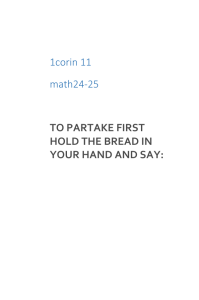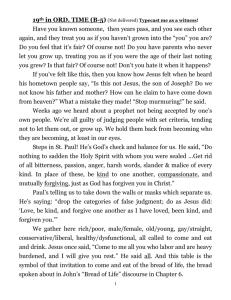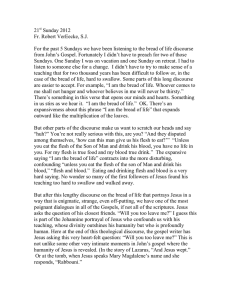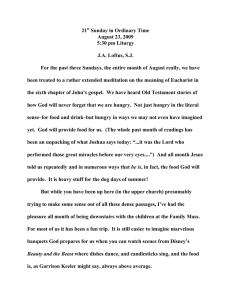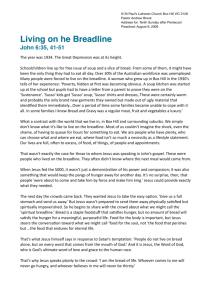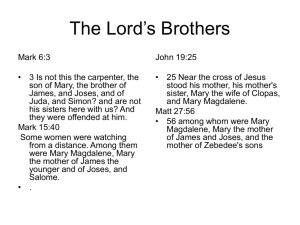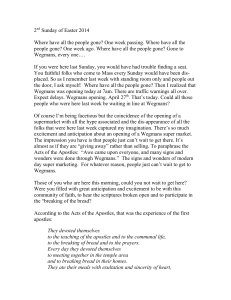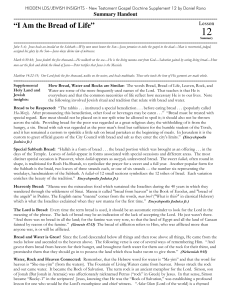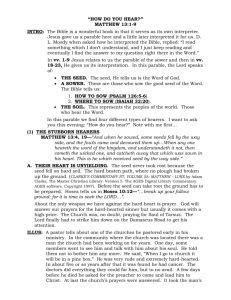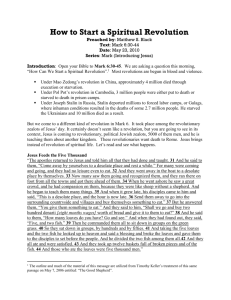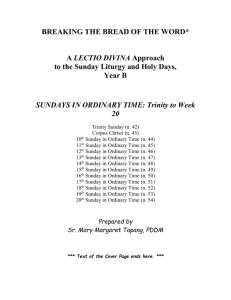The Eight “I am” statements of Jesus in the book of John
advertisement
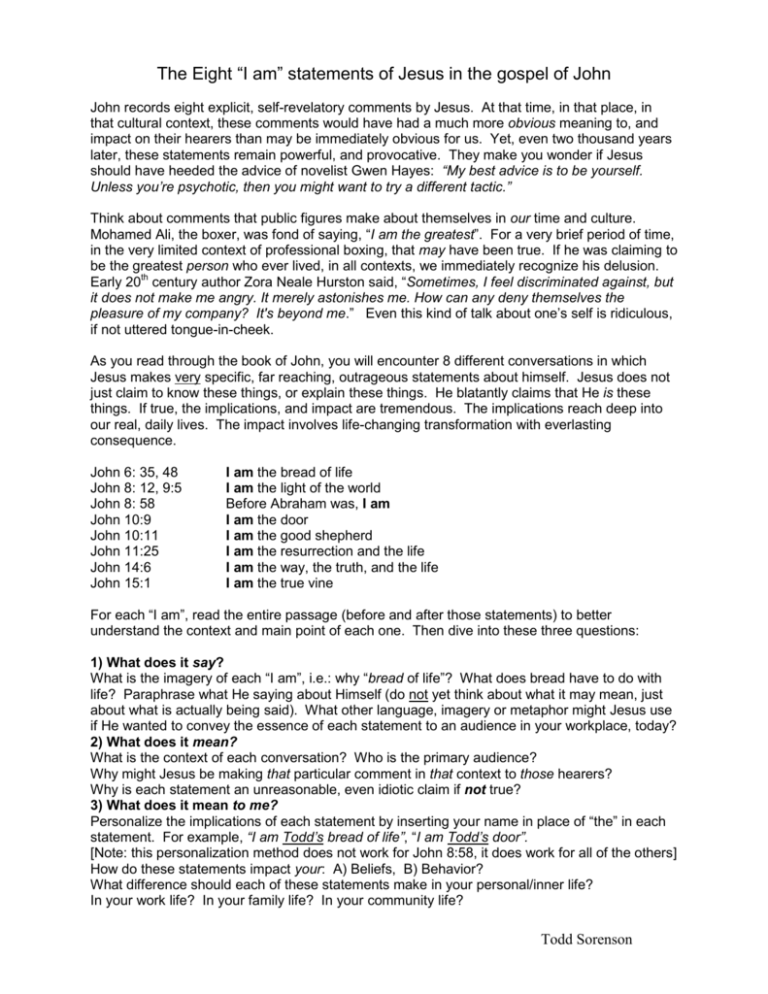
The Eight “I am” statements of Jesus in the gospel of John John records eight explicit, self-revelatory comments by Jesus. At that time, in that place, in that cultural context, these comments would have had a much more obvious meaning to, and impact on their hearers than may be immediately obvious for us. Yet, even two thousand years later, these statements remain powerful, and provocative. They make you wonder if Jesus should have heeded the advice of novelist Gwen Hayes: “My best advice is to be yourself. Unless you’re psychotic, then you might want to try a different tactic.” Think about comments that public figures make about themselves in our time and culture. Mohamed Ali, the boxer, was fond of saying, “I am the greatest”. For a very brief period of time, in the very limited context of professional boxing, that may have been true. If he was claiming to be the greatest person who ever lived, in all contexts, we immediately recognize his delusion. Early 20th century author Zora Neale Hurston said, “Sometimes, I feel discriminated against, but it does not make me angry. It merely astonishes me. How can any deny themselves the pleasure of my company? It's beyond me.” Even this kind of talk about one’s self is ridiculous, if not uttered tongue-in-cheek. As you read through the book of John, you will encounter 8 different conversations in which Jesus makes very specific, far reaching, outrageous statements about himself. Jesus does not just claim to know these things, or explain these things. He blatantly claims that He is these things. If true, the implications, and impact are tremendous. The implications reach deep into our real, daily lives. The impact involves life-changing transformation with everlasting consequence. John 6: 35, 48 John 8: 12, 9:5 John 8: 58 John 10:9 John 10:11 John 11:25 John 14:6 John 15:1 I am the bread of life I am the light of the world Before Abraham was, I am I am the door I am the good shepherd I am the resurrection and the life I am the way, the truth, and the life I am the true vine For each “I am”, read the entire passage (before and after those statements) to better understand the context and main point of each one. Then dive into these three questions: 1) What does it say? What is the imagery of each “I am”, i.e.: why “bread of life”? What does bread have to do with life? Paraphrase what He saying about Himself (do not yet think about what it may mean, just about what is actually being said). What other language, imagery or metaphor might Jesus use if He wanted to convey the essence of each statement to an audience in your workplace, today? 2) What does it mean? What is the context of each conversation? Who is the primary audience? Why might Jesus be making that particular comment in that context to those hearers? Why is each statement an unreasonable, even idiotic claim if not true? 3) What does it mean to me? Personalize the implications of each statement by inserting your name in place of “the” in each statement. For example, “I am Todd’s bread of life”, “I am Todd’s door”. [Note: this personalization method does not work for John 8:58, it does work for all of the others] How do these statements impact your: A) Beliefs, B) Behavior? What difference should each of these statements make in your personal/inner life? In your work life? In your family life? In your community life? Todd Sorenson


